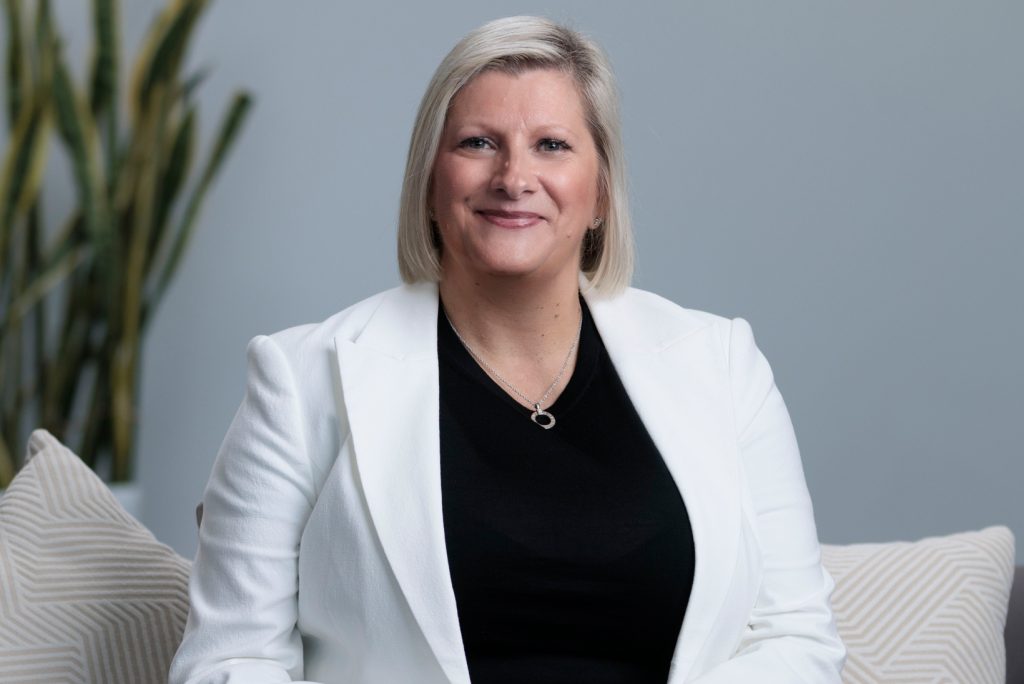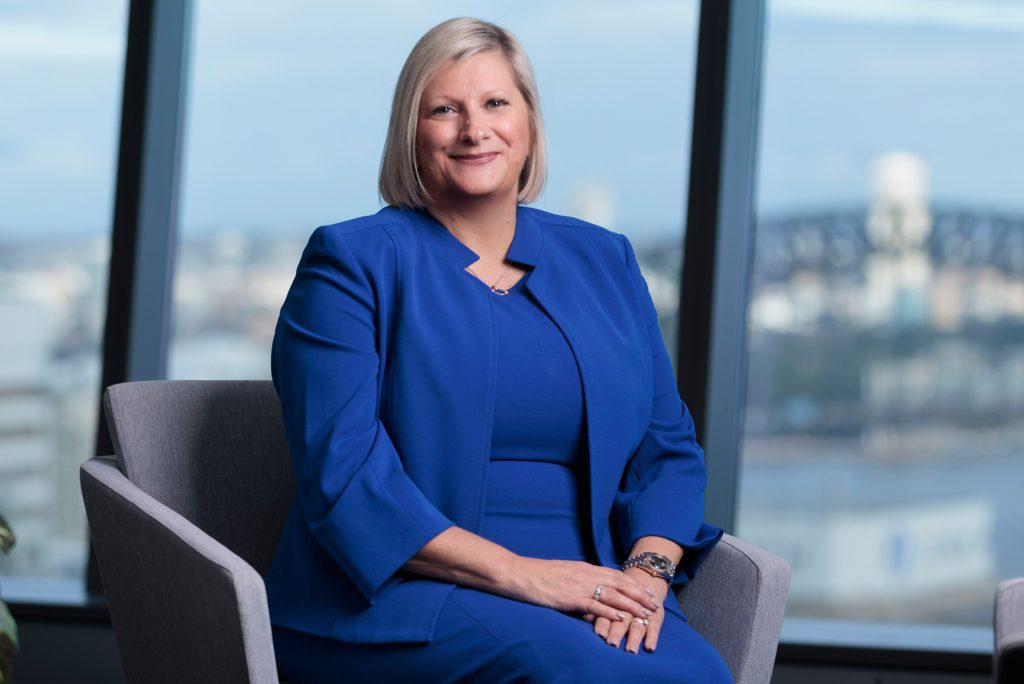July 19, 2023
“I spoke to one company and got down to the final two but they said no,” shared Vicki Batka. “They felt that I didn’t have enough pure sales experience and didn’t feel confident having me stand in front of salespeople asking those questions.”
Yes, those questions;

Such doubts were levelled at a high-performing Singapore-based executive with more than 35 years of industry experience to draw on across Asia Pacific and Japan (APJ).
This is a leader with deep expertise in running indirect channels for the top technology vendors in market – Cisco, SAP, VMware, CA Technologies, Adobe, Toshiba and Network Associates – spearheading teams that collaborate with thousands of partners in region.
Most recently at Cisco, she commanded an ecosystem housing more than 10,000 partners, driving growth through a network of valued-added resellers, system integrators, managed service providers and distributors.
“I thought okay, that’s fine,” Batka accepted. “But hang on, I thought running channel sales was much harder because it’s by influence? At the end of the day, I’m relying on another company to get that done, they are not even under my authority in that sense.”
Sitting opposite as the midday sun broke cloud cover to illuminate the boardroom table, Batka offered a refreshing dose of brutal honesty – a skill considerably lacking in an industry built on platitudes.
This wasn’t a 50-minute interview used to roll out predictable product nonsense, excessive self-promotion or clichéd market commentary. No, this was an authentic and fair assessment of a career that started and excelled in one critical discipline.
“People want proof,” Batka added. “They want to know, ‘show me your track record’. My track record is 35 years in channel with a little bit of marketing so when I talked to people the response was, ‘yeah, no’.”
While Batka is pragmatic enough to understand the market dynamics – and does so with a sense of humility – the issue of typecasting is clear for executives rising through the ranks as a master of one particular trade.
“But hang on, I thought running channel sales was much harder because it’s by influence? At the end of the day, I’m relying on another company to get that done”
In most cases, she wouldn’t even get on the shortlist – forget making the final two. This became evident following a conversation with a recruiter friend who specialises in hiring C-levels for a very large organisation, ‘why do you never put me up for those kind of jobs?’
The response was typecasting at its finest, ‘because you’re so good at this’.
“Even for a recruiter, she was so blinkered that just because I was so good at channel, that’s all I would want to do or could do,” said Batka, who started her career in her native Australia. “She would always put me up as the channel person for any high profile position so there’s always these biases that exist.
“But I went for a few roles as a channel leader and I’d meet these people and think, ‘sorry, I don’t want to work for you. I can’t learn from you and I think you can learn from me’.”
Boxed in by her own success, Batka’s attempt to break the cycle and branch out beyond channel faced another mountainous climb. Being typecast is hard, try being typecast as a woman.
“I genuinely hate saying this but as a female, I’ve got peers that I’ve worked with who’ve all become APJ leaders – some at pre-IPO and they’ve made lots of money,” Batka noted.
“So I actually had this conversation with a former colleague who was at a private equity firm and I asked, ‘how come you’re always dipping in and getting guys to run these businesses?’ I wanted to know why females were overlooked for these type of pre-IPO opportunities.”
The response was cold and clinical, ‘because they’re reliable and they just get it done’.
The private markets industry has almost $10 trillion in assets under management which is more than the gross domestic product (GDP) of every country except the US and China. But according to McKinsey, women make up only 12% of managing directors and 16% of principals and partners in investment roles at private equity firms.
“But I’m thinking, what about the collateral damage that they do sometimes?” Batka questioned. “Yes, they’ll make the number by hook or by crook and I get that but they don’t always do it in a thoughtful way. I’ve worked with people with massive egos and I do think, how’d that person get that job?”
Based on that assumption in market, Batka started to position herself as the “next leader after that” – the good person to go in as the business needs to scale out and grow. Unquestionably committed to the number but different in approach and style. Same result just less of a clean up job after.
“I was told that private equity is hard and if you can make it there for a few years then you can make it anywhere,” she added. “I thought, ‘okay, that’s good to know’ and that’s when I started to think I’ve got nothing to lose.”

‘For the first time I’m not being seen as disruptive’
Today, Batka is Senior Vice President (SVP) of APJ at Trellix, a cyber security vendor born out of a merger between McAfee Enterprise and FireEye.
Under the control of Symphony Technology Group (STG) – a private equity firm with an expansive market portfolio – the combined entity serves more than 40,000 customers, houses over 5,000 employees, and reports nearly $2 billion in revenue.
With Bryan Palma as CEO, the company rebranded to Trellix in early 2022 and operates as a leader within the extended detection and response (XDR) space.
Batka joined in June 2022 following more than six years at Cisco, tasked with spearheading expansion efforts across the region.
“Of course, I 100% thought that I couldn’t do this role,” she admitted. “But even Trellix was taking a risk because I didn’t have the track record. That didn’t annoy me because I get that and yes, that’s kind of true. It’s definitely a first.”
For years, Batka always believed this type of job was out of reach – continually bouncing from not wanting the top position in region to thinking she couldn’t even do it in the first place. After all, every executive wants to sleep at night and no leader enjoys stress.
“I think I finally got over that feeling about six months into this role,” she said. “I had gardening leave to think about it and I couldn’t even tell anyone.
“Often with interviews you don’t meet all of the team so I spent time doing some research and I realised we needed to bring people in. In some ways, I’ve just been using all the skills that I didn’t even realise I already had.”
Without knowing it, Batka was already operating in a general manager capacity given the remit of channel leaders. This is a position which requires close contact with legal and pricing teams, working with the deal desk and quote teams, even manufacturing.
“So, you’re already across everything,” she noted. “When I was interviewing for the role at Trellix, it was a VP position. But when I got my letter of offer it said, SVP. I ran around the house cheering, yelling and screaming like a crazy person. My husband thought it was funny. Never in a million years did I think I would be an SVP.”
“Yes, they’ll make the number by hook or by crook and I get that but they don’t always do it in a thoughtful way”
But in truth, Batka never thought a career spanning over three decades in the channel was on the table either.
“Then I got a job at VMware and went and ran the channel across Asia Pacific,” she recalled. “I just didn’t see that. I’ve always moved around because I’ve kind of gone, ‘oh, yeah, I think I could do that. But I don’t know’.”
In joining a company offering full autonomy with a supportive CEO, Batka acknowledged the adjustment of being in an SVP role and the responsibility such a position affords.
“Look at decision making,” she explained. “We were joking about three months in that if I needed something in the past, I’d have to write a business case then present it.
“Then it would be a case of no, no, no, refine it, do this, do that and maybe after the 10th attempt, someone might approve the funding. Now if we think something makes sense, we just go and do it.”
When directly engaging with Palma as CEO – an executive with experience spanning Boeing, PepsiCo, Cisco, HP, BlackBerry, AT&T, FireEye and McAfee Enterprise – Batka not only has an open line to the top but a voice of encouragement in return.
“When I go back to our CEO and share that I don’t think something is right, for the first time I’m not being seen as disruptive,” Batka said. “I’m being heard for my experience and my opinion based on evidence.”
Case in point being Batka’s thoughts on how best to structure the vendor’s global channel business following the departure of the company CRO. The response was, ‘help us fix it’, leading to interim responsibility of the worldwide project.
“Life is not perfect and we’ve had days that are bloody hard because in my previous roles, there would have been 20 people to help solve a problem,” she added.
Yet the return is much more rewarding. Fresh from closing out a first half which recorded high double-digit growth, Batka and her team are focused on knuckling down and following a strategic plan of attack.
“Some things are for now, not now and maybe never but you have to prioritise,” she outlined.
“I understand the difficulty of walking away from a place where you’re comfortable but it’s different as I’m at the other end of my career. So why wouldn’t I do this? Why wouldn’t I give this a go?”
Inform your opinion with executive guidance, in-depth analysis and business commentary.